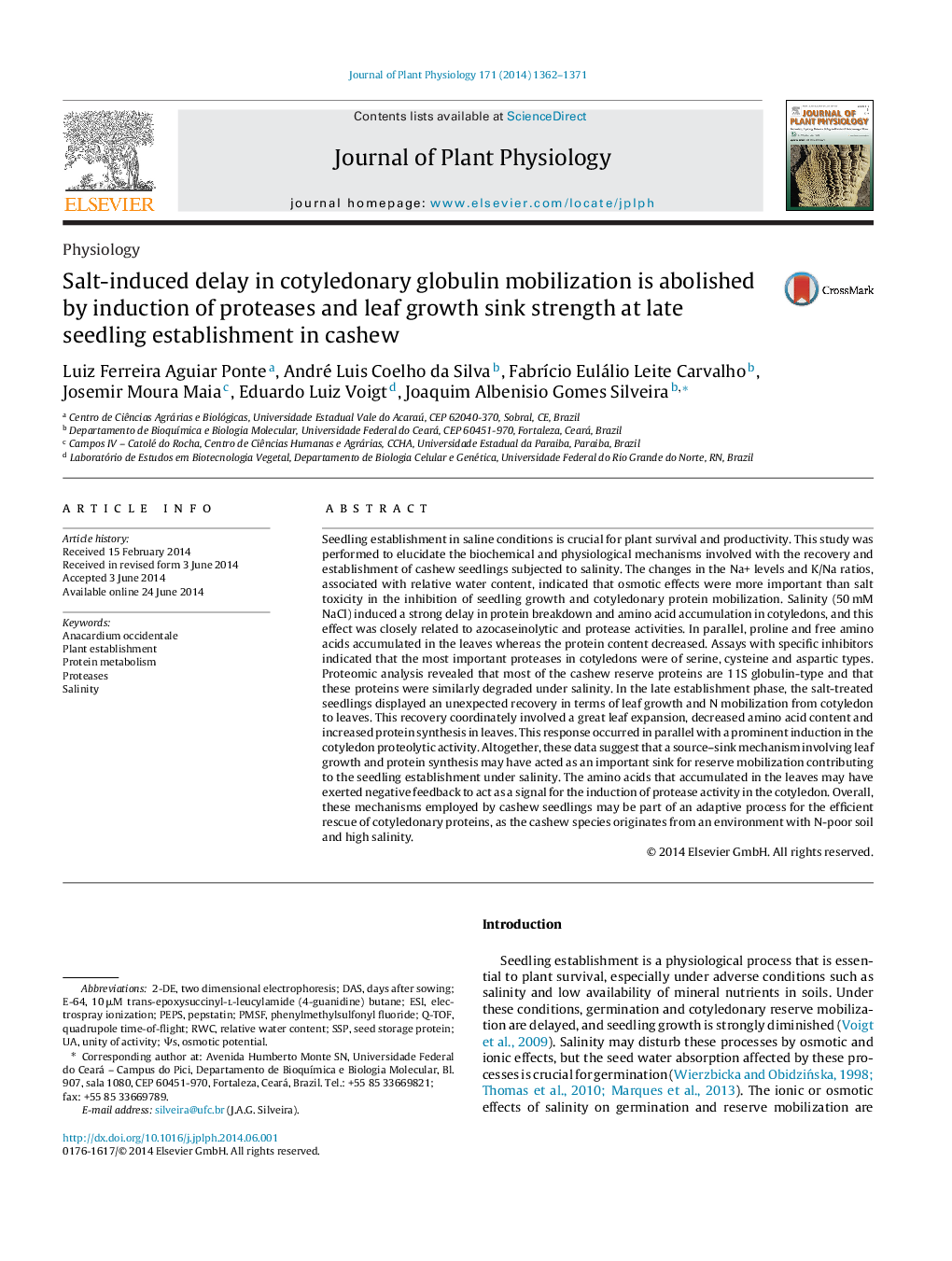| کد مقاله | کد نشریه | سال انتشار | مقاله انگلیسی | نسخه تمام متن |
|---|---|---|---|---|
| 2055922 | 1075789 | 2014 | 10 صفحه PDF | دانلود رایگان |
Seedling establishment in saline conditions is crucial for plant survival and productivity. This study was performed to elucidate the biochemical and physiological mechanisms involved with the recovery and establishment of cashew seedlings subjected to salinity. The changes in the Na+ levels and K/Na ratios, associated with relative water content, indicated that osmotic effects were more important than salt toxicity in the inhibition of seedling growth and cotyledonary protein mobilization. Salinity (50 mM NaCl) induced a strong delay in protein breakdown and amino acid accumulation in cotyledons, and this effect was closely related to azocaseinolytic and protease activities. In parallel, proline and free amino acids accumulated in the leaves whereas the protein content decreased. Assays with specific inhibitors indicated that the most important proteases in cotyledons were of serine, cysteine and aspartic types. Proteomic analysis revealed that most of the cashew reserve proteins are 11S globulin-type and that these proteins were similarly degraded under salinity. In the late establishment phase, the salt-treated seedlings displayed an unexpected recovery in terms of leaf growth and N mobilization from cotyledon to leaves. This recovery coordinately involved a great leaf expansion, decreased amino acid content and increased protein synthesis in leaves. This response occurred in parallel with a prominent induction in the cotyledon proteolytic activity. Altogether, these data suggest that a source–sink mechanism involving leaf growth and protein synthesis may have acted as an important sink for reserve mobilization contributing to the seedling establishment under salinity. The amino acids that accumulated in the leaves may have exerted negative feedback to act as a signal for the induction of protease activity in the cotyledon. Overall, these mechanisms employed by cashew seedlings may be part of an adaptive process for the efficient rescue of cotyledonary proteins, as the cashew species originates from an environment with N-poor soil and high salinity.
Journal: Journal of Plant Physiology - Volume 171, Issue 15, 15 September 2014, Pages 1362–1371
